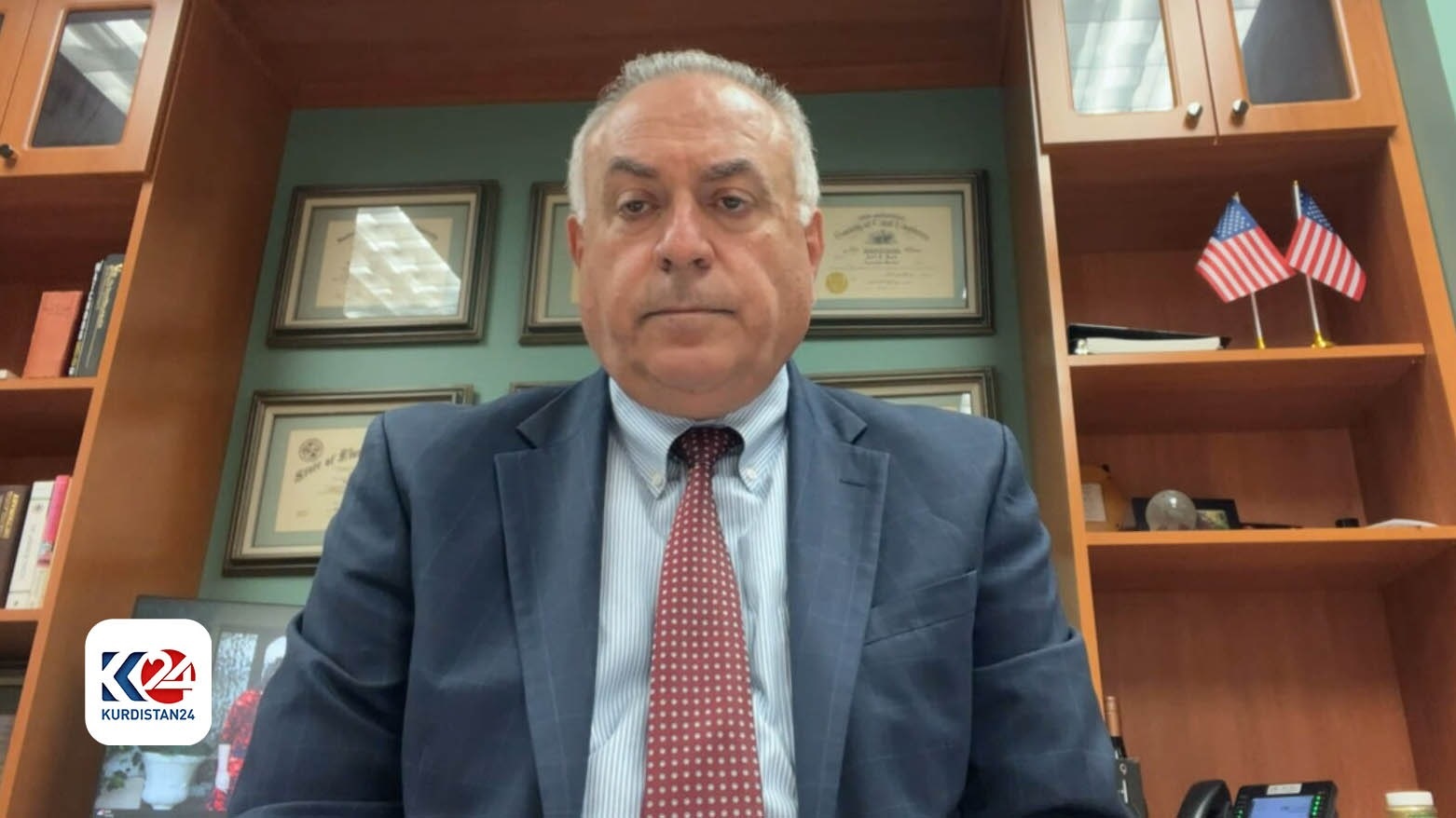American bases create stability in Mideast, says US-Lebanese Trump advocate
Harb is also the President of the World Council of the Cedars Revolution (WCCR), established in 2006 after Lebanon experienced turmoil at the height of the Hezbollah-Israel conflict in 2005.

ERBIL (Kurdistan24) - Tom Harb, the Co-Chair of the American Middle East Coalition for Democracy (AMCD), on Thursday held an exclusive interview with Kurdistan24, where he gave his perspective on the recent Jan. 15 Iranian missile strikes in Erbil and, broadly, the varying geopolitical interests among Iran, the US, and Saudi Arabia in the region.
“Iran is attacking its neighbors in Pakistan, Syria, and its Houthi proxy is attacking ships in the Red Sea. Everybody here in the United States is now saying the problem we are facing is Iran,” Harb told Kurdistan24.
Born and raised in Lebanon and educated in the United States, Harb is also the Chairman of the American Maronite Union, an organization seeking to advance the interests of the Christian Lebanese diaspora in the West.
Notably, the AMCD was a proponent of former US President Donald Trump, advising Americans of Middle Eastern descent to vote for him during both the 2016 and 2020 elections.
Read More: Congressmen call on Biden Administration to Support Kurdistan Region
“There are a lot of members of Congress calling on President Biden to hit Iran to try to hit the oil refinery for Iran, because it seems Iran is not getting the message that what they are doing is horrible for the region,” he continued.
After the Oct. 7 Hamas attack on Israel, the AMCD published a statement strongly condemning Hamas and holding Iran responsible for undermining the expected peace deal between Israel and Saudi Arabia.
For Harb, the power struggle between Iran and its regional rival, Saudi Arabia, led the former to encourage a preemptive strike on Israel. “There are two two branches, one branch going toward peace led by Saudi Arabia and other coalitions in the Arab world and there's Iran trying to undermine any peace movement.”
Harb is also the President of the World Council of the Cedars Revolution (WCCR), established in 2006 after Lebanon experienced turmoil at the height of the Hezbollah-Israel conflict in 2005.
With the WCCR, he became particularly influential in introducing UNSCR 1559; a resolution centering on the disarmament of militant organizations in Lebanon and earning him senior leadership roles in Lebanese-American civil institutions.
Harb later discussed the presence of the Americans in Iraq, saying that the two US bases in the country “create stability in Iraq and in the region.”
Read More: Houthis Fire on U.S. Warship, despite ‘Private’ Message from U.S. to Iran
He further touched upon US foreign policy with some strong criticism for Biden. “This administration is weak. [It] is the opposite of the prior administration under President Trump, who put the heaviest sanctions on Iran and he also put sanctions on the Houthis in Yemen. Then President Biden came and lifted the sanctions on the Houthis and now he had to go back and replace those sanctions.”
“But [Biden] has also lifted some sanctions on Iran, and he flooded them with cash so up until now, this administration is very weak to deal with Iran because they want to go back to the nuclear deal, which was under President Obama,” the co-chair concluded.